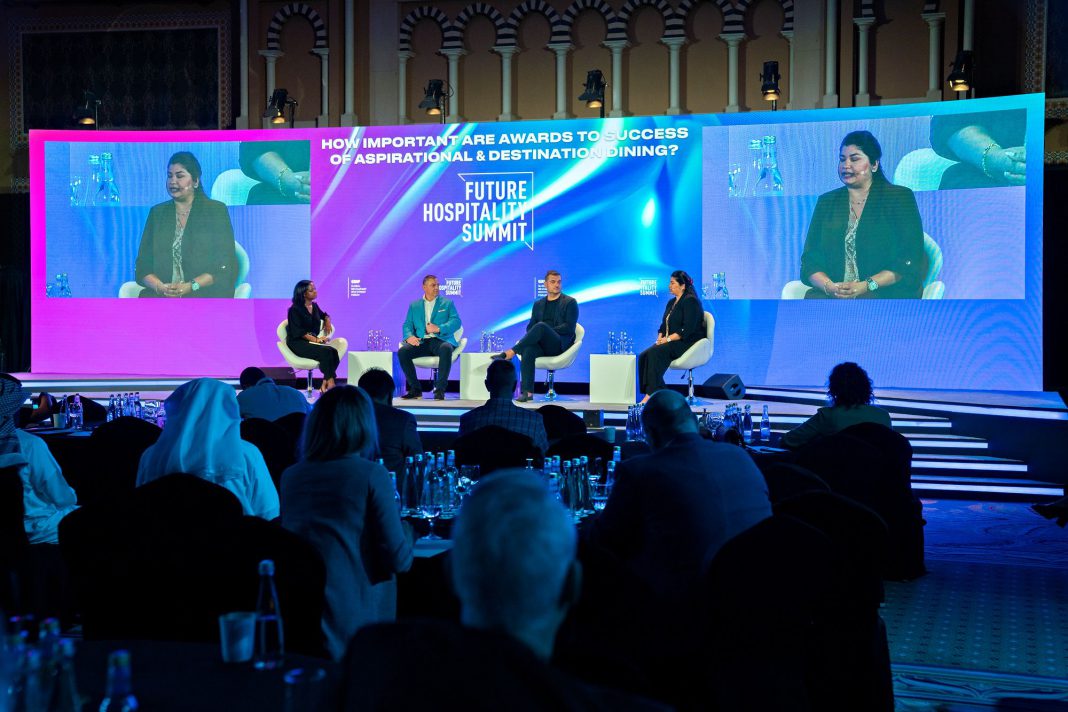The Future Hospitality Summit (FHS) taking place in Dubai at Madinat Jumeirah from September 19-21 is set to tackle how the industry can lead the change in sustainable tourism and hospitality.
There was an almost 100 per cent increase in consumers interested in sustainability in 2021 compared to 2019, with a significant movement in 2020 coinciding with the peak of Covid-19, according to a report on sustainability in the GCC released by Dubai-based AI-driven consumer insight & influence specialists, D/A.
The report, which is based on the largest study on understanding sustainability in the GCC, covers consumer interest in sustainability, explores where Government is leading the discussions and charts the course for the future, and what brands are talking about when it comes to sustainability. The profile of consumers interested in sustainability in the region is young, especially in Saudi Arabia where 50 per cent are under the age of 30.
Faisal Khan, Vice President Strategy & Insights at D/A said, “With the data as context, for any customer-centric organisation the first opportunity is in acknowledging the relevance and size of the opportunity around sustainability. There is merit in establishing clear sustainability goals and meticulously evaluating how organisations take sustainability forward from here on, else they run the risk of comprising a genuine customer-connect.”
Social sustainability is a priority for GCC consumers, especially in KSA and Kuwait, but the environment is high on the agenda too with climate change being the fastest trending, aligned with government priorities in the region.
Sustainability in the context of travel and hospitality has seen a consistent interest among consumers in the GCC with 50 per cent of conversations focused on the role hotels can play in driving education and awareness around sustainability, and another 30 per cent around environmental sustainability including climate change. But are brands doing enough?
There is a 40 per cent year-on-year increase in the number of brands prioritising sustainability and brands are creating 105 per cent more content on the topic year-on-year with environmental sustainability counting for 56.5 per cent of the content created. However, brands under-leverage social sustainability and are not talking enough about climate-change related initiatives, demonstrating the opportunity to champion sustainability and build resonance and emotional connect with consumers in the GCC, especially as the average engagement on sustainability content is 50% higher than all posts brands create.
Brands from some industries are more active than others with food & beverage being the most active, followed by retail and service brands -including travel- together making up 90 per cent of sustainability posts in the GCC.
Leadership in the GCC is vocal on the role of sustainability to the future of the region. Government entities in the region are known for their initiatives to maintain a social balance and have been active to support countries and societies in need. What emerges as a priority beyond social sustainability is environmental sustainability, with a strong focus on climate change and pollution, driving 75 per cent of conversations, followed by animal welfare including food safety and plant-based topics at 16 per cent, and waste management at 14 per cent. The research shows a significant effort from Governments to drive awareness of sustainability.
Commenting on the data, Jonathan Worsley, Chairman of The Bench, said: “These insights are incredibly important for our industry as we look to the lead the change and chart the future of sustainable tourism and hospitality in the Middle East and beyond.
“Sustainability is at the core of this year’s program at FHS, not just in the main-stage presentations and panel discussions but also in the event experiences we have created for delegates this year. We are also proud to host the finals of the 2022 Sustainable Hospitality Competition and look forward to hearing the ideas on innovation and sustainability from the world’s most talented student teams as the next generation of hoteliers.”
Future Hospitality Summit opens to talks on sustainability


